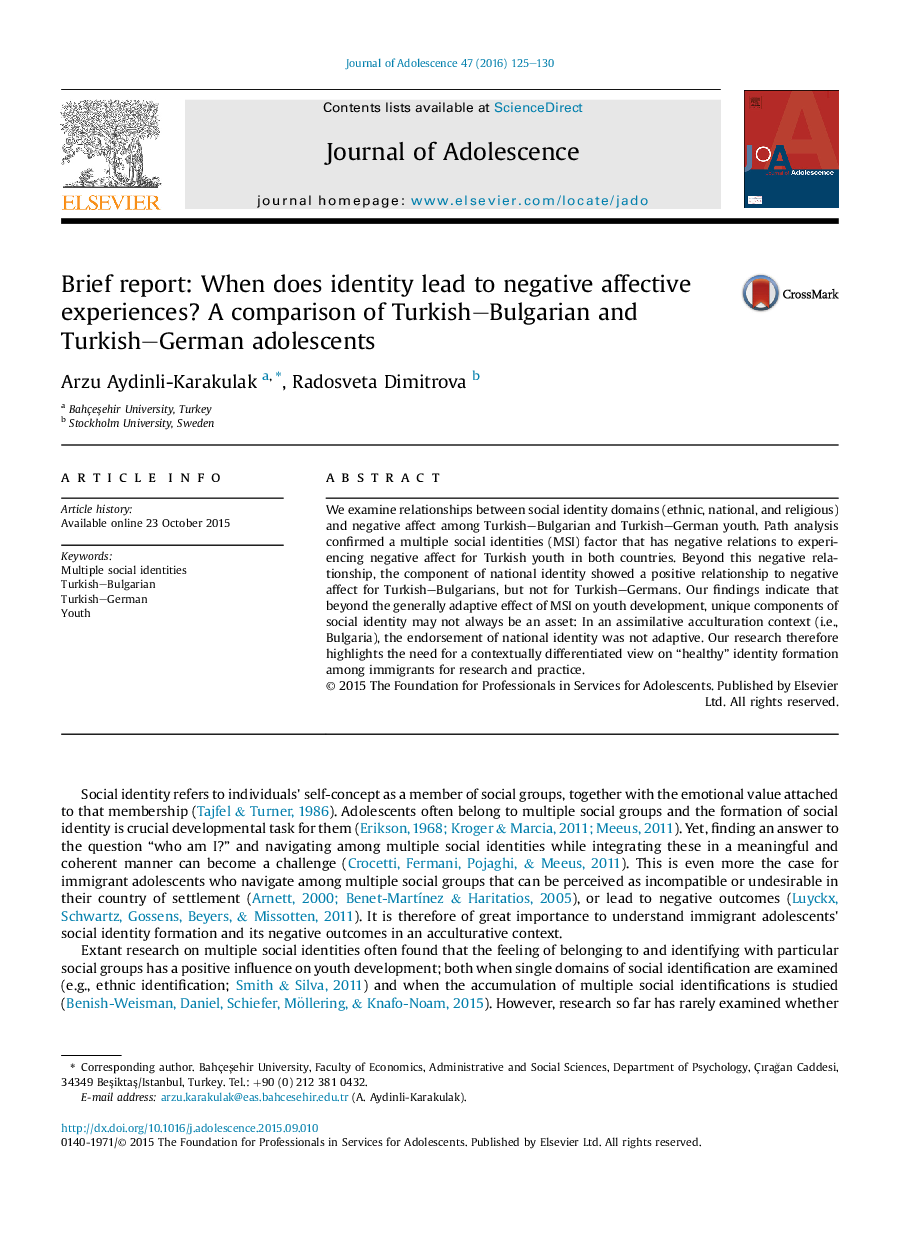| Article ID | Journal | Published Year | Pages | File Type |
|---|---|---|---|---|
| 880578 | Journal of Adolescence | 2016 | 6 Pages |
We examine relationships between social identity domains (ethnic, national, and religious) and negative affect among Turkish–Bulgarian and Turkish–German youth. Path analysis confirmed a multiple social identities (MSI) factor that has negative relations to experiencing negative affect for Turkish youth in both countries. Beyond this negative relationship, the component of national identity showed a positive relationship to negative affect for Turkish–Bulgarians, but not for Turkish–Germans. Our findings indicate that beyond the generally adaptive effect of MSI on youth development, unique components of social identity may not always be an asset: In an assimilative acculturation context (i.e., Bulgaria), the endorsement of national identity was not adaptive. Our research therefore highlights the need for a contextually differentiated view on “healthy” identity formation among immigrants for research and practice.
